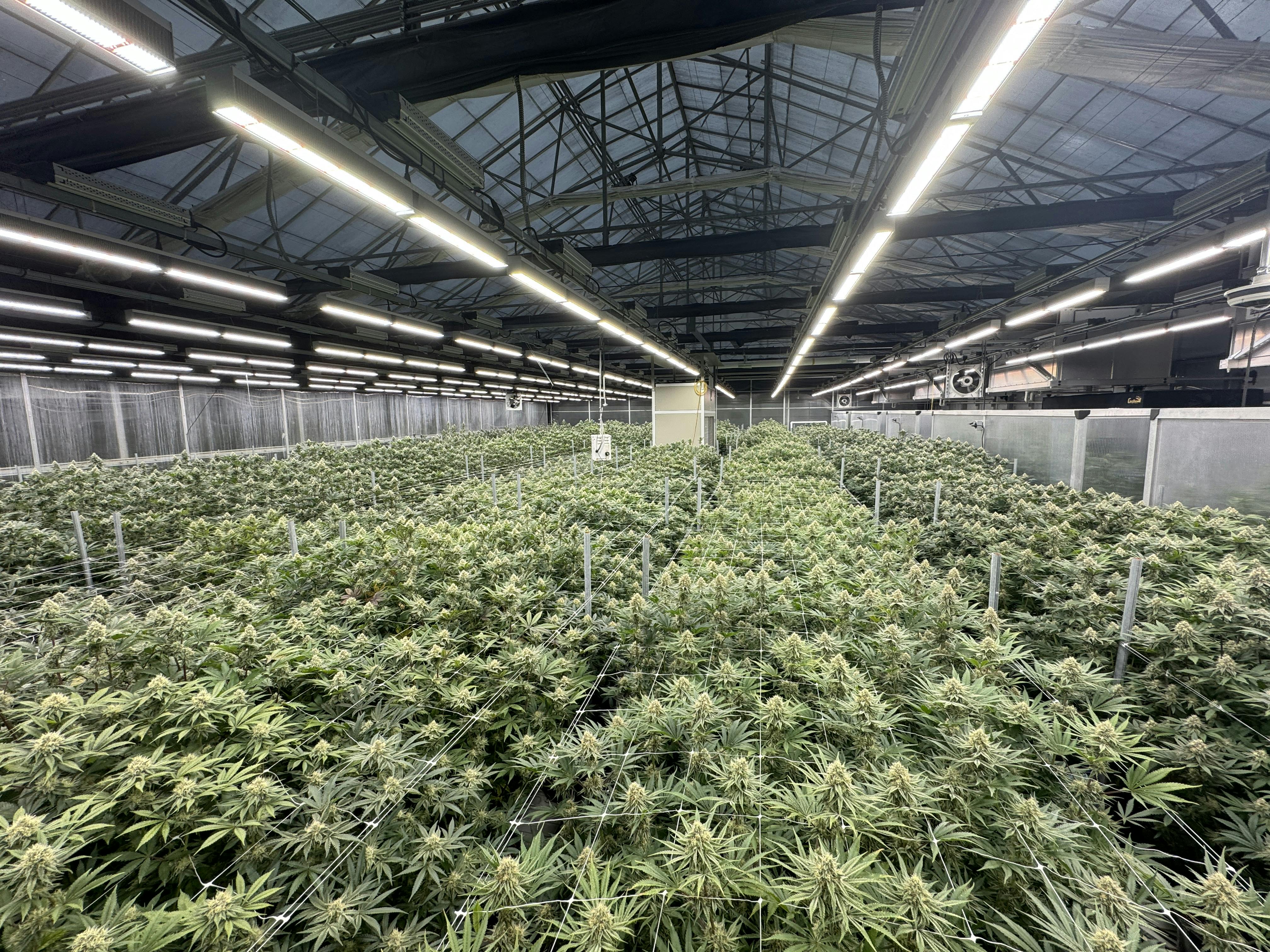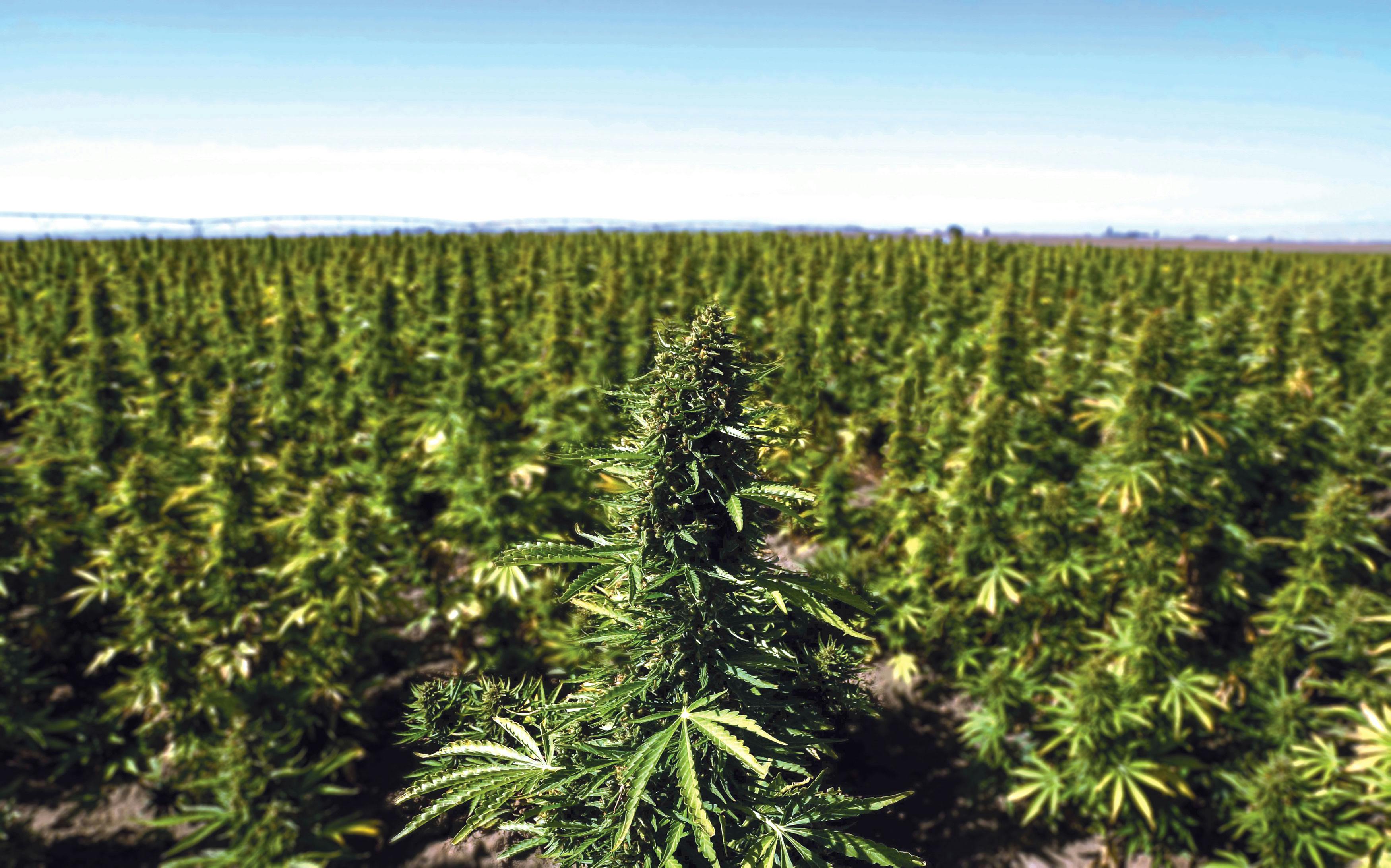The choice of genetics plays a pivotal role in determining the success of any crop. For cannabis cultivation, clones have historically been the only way to grow uniform, high-potency plants. Phylos applies modern breeding techniques to elite genetics to give growers access to F1 Hybrid seeds that produce plants with all the best traits of clonal cultivars at a significantly lower operating cost.
Selecting cannabis seeds
There are many types of cannabis seeds you can buy. What should you take into consideration when selecting the ones right for you? Let’s break down some of the different types of seeds you might find online or at a dispensary: F1 hybrid seeds, pheno hunt / F1 polyhybrid seeds, feminized seeds, triploid seeds, and autoflower seeds.
F1 hybrid seeds
In traditional agricultural breeding terms, "F1 hybrid seeds" are first-generation seeds produced from two parents with distinct and stable physical characteristics (physical characteristics are often referred to as "phenotypes"). True F1 hybrid seeds produce uniform plants with the parents' dominant traits.
One of the most significant advantages of F1 hybrid seeds is hybrid vigor. F1 hybrids often display increased yield potential, faster growth rates, and improved resistance to pests and diseases. This true F1 hybrid vigor directly translates into healthier, more robust plants with higher productivity.
Phylos Production-Ready Seeds are true F1 hybrids and are constantly improving through advances in marker-assisted selection applied in our breeding program. After they are evaluated in our program, selected F1 hybrid varieties are sent for further trialing to cultivation partners worldwide to grow in different production environments and geographic locations. We review the performance from our evaluation and partner trials to identify the top-performing F1 hybrid varieties and make those available for commercial sale.

Controlled, mixed-light environment full of seed-grown plants.
Pheno hunt / polyhybrid seed
Pheno hunt (or polyhybrid) seed comes from many sources–some may be a “variety pack” that could exhibit chemical and phenotypic variability, others might be “F1 hybrids” produced from non-genetically stable parents–and are used for a process called “pheno hunting.” This process starts with growing out genetically diverse seeds to see if they produce unique or desired phenotypes (e.g., plant structure, flower production) and chemotypes (i.e., cannabinoid and terpene potency). The selected winners are usually maintained as mother plants for clonal cuts or crossed with other plants to express the desired traits.
The wild diversity of cannabis today comes from this selection process. For the last 35-40 years cannabis growers and breeders have primarily focused on THC production and plants that offer the most interesting smells, tastes, and experiences, inadvertently leaving out agronomic benefits (e.g., plant-to-plant uniformity, trimability ease,), pest resistance (e.g., HLVd), and rare cannabinoids (e.g., THCV), in the process.
“Pheno hunting” with pheno hunt seed (or, seed that is not true F1 hybrid seed) is used by growers and breeders looking for unique strains or phenotypes. It requires significantly more time and resources to identify and cultivate desirable phenotypes and requires the maintenance of mother plants in a specialized room that are then used for clonal propagation.
With modern breeding techniques and marker-assisted selection, Phylos speeds up the traditional pheno hunting process by using genetic markers for a faster selection process with fewer resources, similar to typical agricultural crops such as soybeans or corn. Plants without genetic markers for desired traits are culled at the seedling stage before transplant, saving space and time to evaluate more desirable plants in a single cycle. Once an ideal and genetically stable plant is identified from licensed cultivars, Phylos uses it as one of the two parents to make our production-ready true F1 hybrids.
Feminized seed
You might see the term “feminized” on seed packets or online cannabis seed shops. This type of seed is intentionally produced to only grow flower-producing female plants. Some retailers will simply state “feminized,” whereas others will list the percentage of female plants in a given sample size. Female cannabis plants produce flowers containing cannabinoid-rich trichomes, while male plants produce pollen. It is important to note that while these plants may be feminized, they are still fertile. Female plants can be pollinated by a nearby male cannabis plant, which results in stunting of flower growth and producing seeds, seeding your flower harvest.
When starting with reliably-sourced feminized seed, growers and cultivators can be assured that their production space and labor are dedicated to only female plants from the beginning, reducing the amount of scouting for male pollen sacs and testing required at or before flower initiation. You might ask, how can you tell if the plant is female or succumbing to hermaphroditism?

Hermaphroditism in cannabis
Phylos only uses female plants in our breeding program so no male chromosomes make it into the next generation–from experimental to commercial seed lines–making our Production-Ready Seed, truly feminized seed.
Triploid seed
Triploid seeds get their name because they have an additional set of chromosomes that make the seed-grown plants sterile. They are a great option for outdoor grows where you run the highest risk of pollination from nearby productions or hermaphroditic plants. Triploid seeds can produce cannabis plants with higher yields, potency, and terpenes than outdoor seeds you may have previously worked with. But, triploid seeds can be unpredictable.
"Seedless" watermelons are a well-known triploid crop. When you open a "seedless" watermelon, you have likely seen some contain immature, unviable seeds–meaning that the plants are still getting pollinated. In the case of cannabis plants grown from triploid seed, they are subject to this same pollination event that produces “seedless” flower. Growers aim to avoid pollination in cannabis production for many reasons; it could ruin your production cycle by seeding the flower, lowering harvest yields, and even altering the cannabinoid and terpene potency.
Cannabis is naturally a diploid plant with two sets of chromosomes. So, how does a cannabis plant get another set of chromosomes to create a triploid plant? Cell division is arrested by exposure to a chemical compound (found in nature) to create tetraploid plants (four chromosomes). This tetraploid plant is then bred with a diploid plant, resulting in triploid seeds.
Autoflower seeds / day-neutral
Autoflower (or day-neutral) varieties typically present growers with an earlier harvest window in comparison to photosensitive (or full-season) seeds. With a faster maturation time and the ability to eliminate light deprivation requirements, growers will find themselves in a position to produce multiple harvests during longer growing seasons. Some even stagger their operation with photosensitive varieties, with the potential to provide a constant revenue stream.
Given their compact stature, modern cannabis autoflower plants boast a higher harvest index (a measure of flower to biomass) and are optimal for use for extraction. Stems and stalks take a backseat to flower production, meaning fewer unwanted byproducts and ultimately, a higher value per pound for processors. If you’re growing outdoors, have a vertically stacked grow room, or want to plant at a higher density, starting with autoflower seeds could be the way to go. At Phylos, our autoflower seeds have been rigorously trialed and selected for the best traits. We also have amazing cultivation and technical teams who work with you all along the growing cycle to ensure a successful harvest.

Outdoor production of Phylos AutoCBD, autoflower seeds.
Buying cannabis seeds
Choosing the best genetics for your cannabis grow – whether it is for your backyard or 100,000 sq ft facility – is pivotal for your success. While there are many cannabis seeds available to purchase online and at your local dispensary, it is important to know how and for what you are growing.
Before Phylos’ Production-Ready Elite seeds, seed-based production hadn’t been a viable alternative to clonal production; seed-based indoor flower quality and potency, rates of hermaphrodites, and growing cycle timelines were too variable. But now, through the use of modern breeding techniques and marker-assisted selection, growers can find a path toward a sustainable, scalable, and cost-efficient grow with Phylos Production-Ready Seeds. Take a look at our true F1 hybrid seeds at seeds.phylos.bio.
UPDATE: We’ve expanded availability to home growers exclusively through I Love Growing Marijuana. You can browse other Phylos seeds and access ILGM’s expert guidance at ILGM.com.